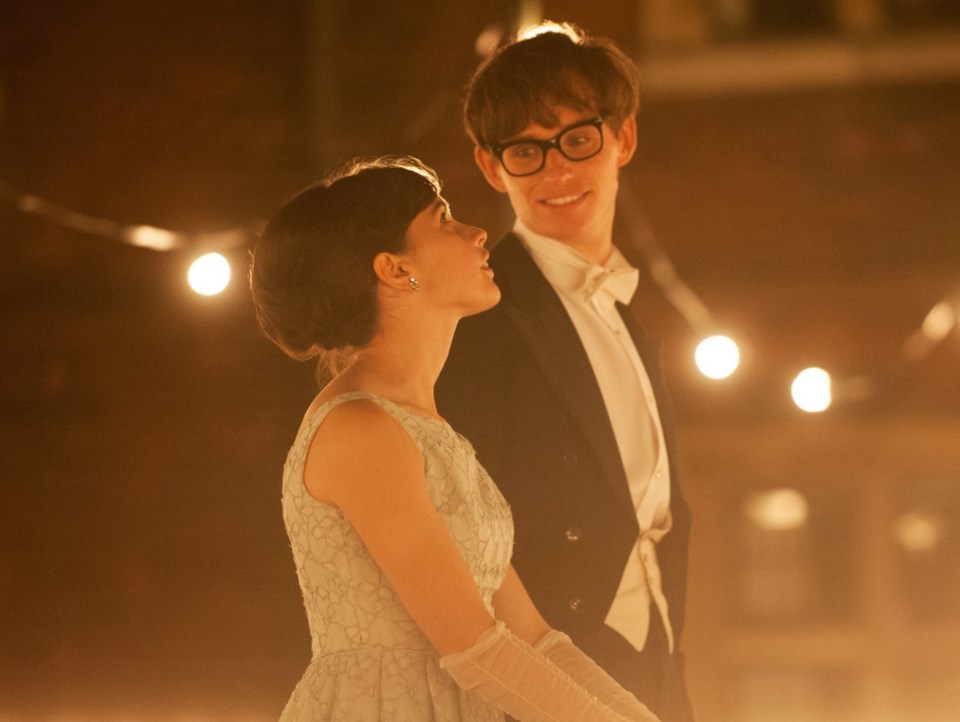The Theory of Everything
Starring Eddie Redmayne, Felicity Jones
Directed by James Marsh
Much like how physicists strive to determine a simple, eloquent equation explaining every aspect of the universe, Hollywood seems hell-bent on uncovering a single biopic formula that can be applied to any influential figure.
Following in the footsteps of last year's Mandela: The Long Walk Home, The Theory of Everything reduces an incredibly complex life – in this case, Stephen Hawking’s – into two hours of standard inspirational storytelling, with a soaring score suggesting poignancy that never manifests.
That said, this commences in promising fashion with young Stephen (Eddie Redmayne) crossing paths with his eventual wife Jane (Felicity Jones) at a Cambridge party in 1963. As they awkwardly discover that they have nothing in common, and verbally spar over their differing beliefs, we’re almost as smitten with them as they are with each other. Alas, there's a Wikipedia entry to dramatize. Consequently, they're relegated to playing reasonable facsimiles of real life figures and completing a circuit of critical events that the film is obligated to touch on.
No stranger to Oscar bait, Les Misérables alum Redmayne demonstrates impressive physical commitment; retaining Hawking's wry air even as his motor capabilities degrade. The more troubling decline to witness is actually that of director James Marsh (Man on Wire). After demonstrating tremendous invention with his documentary work, he appears at a loss as to how to put his stamp on this material, settling for applying an anonymous gloss instead.
In the impersonal process, he becomes the latest director to squander a phenomenal performance from Jones. She conveys Jane’s struggles with the demands of her marriage with a remarkable grace that increasingly eludes the film as it resorts to clumsily snatching at our heartstrings.


